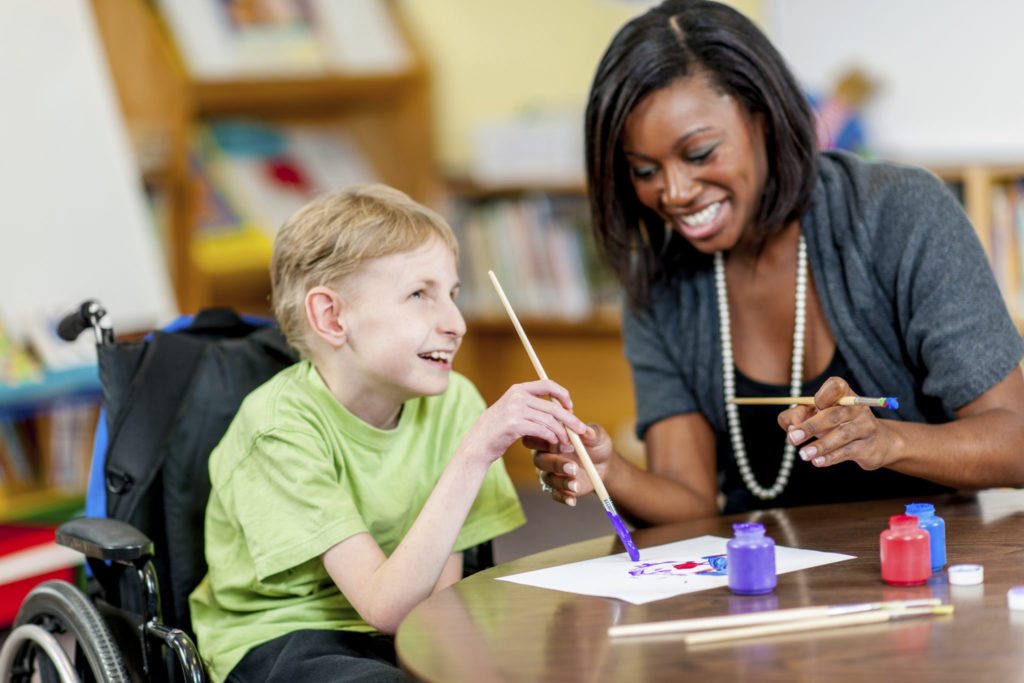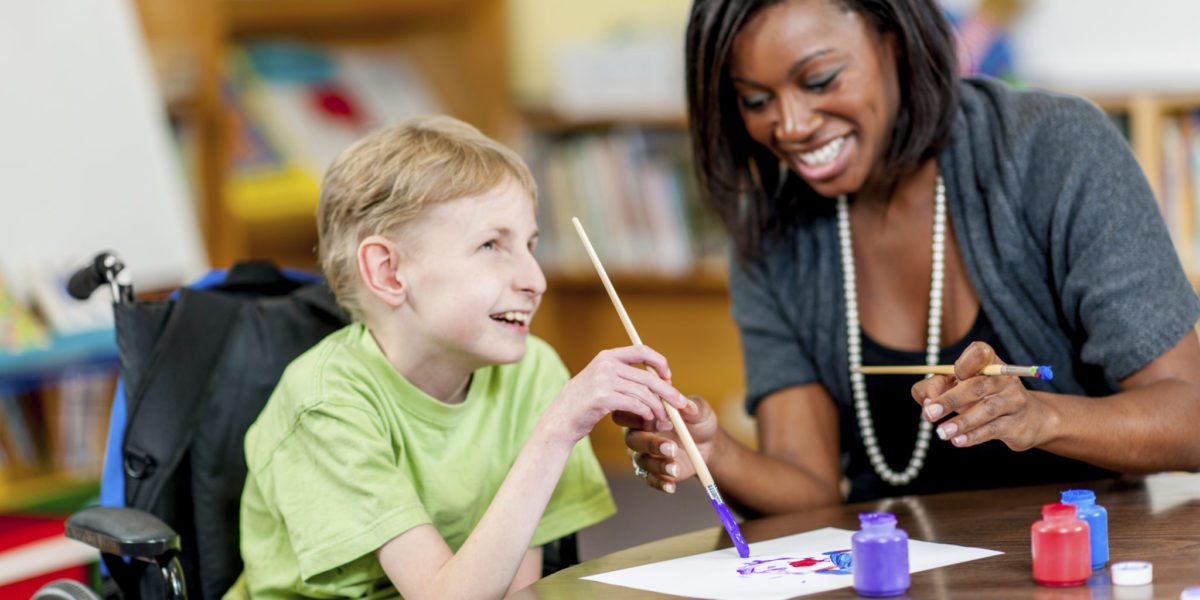Parents should develop routines that take into account their child’s medical and developmental needs, medication schedules and therapy appointments. It is equally important to make sure that their child has a fun and engaging childhood. It is the parents’ responsibility to provide their child with the opportunity to engage with and have exposure to hobbies and activities that they enjoy. Participating in fun activities (especially with others) encourages:
- Social interaction
- Language development
- Development of fine/gross motor skills
- Cognitive/emotional development
Finding local recreational activities
Parents often have concerns about the availability of accessible activities for their child within their community. Start by directly contacting your local city, township, village or state recreation department(s). They may print, publish online or email information about community activity schedules and/or distribute them via mail to residents. Some parents may be interested in using Facebook groups, asking neighbors on the app Nextdoor or using meetup.com to help find fellow disability parents in their area. Their kid(s) might already be in the activities that you are seeking out for your child!
Consider creative hobbies

Creative hobbies with defined goals (such art projects) can provide individuals with disabilities with the opportunity to self-actualize and feel accomplished at the completion of a task. They also foster creative expression, self-esteem, and, in group settings, encourage inclusive environments where children can feel that they belong. This is especially true in settings where art therapy is practiced, as these programs are led by trained professionals, helping participants express themselves, resolve potential conflict, and increase communication.
These programs also have the added benefit of being adaptable, often with available accommodations for physical limitations. Adaptive drama programs foster language development and empowerment in the context of performance, while adaptive dance programs help individuals build strength, flexibility and range of motion.
What sorts of hobbies & activities are available for kids with disabilities?
Because each person’s abilities are unique, some activities may be more suitable for them than others. However, many activities can be modified to make them more accessible. The following is a sample list of activities available for individuals with disabilities, though it is by no means comprehensive.
| Arts and Crafts | Doll-making | Quilting |
| Aquarium and Museum Visits | Drawing, Sketching and Painting | RC Cars, Trucks and Planes |
| Arcade, Board and Card Games | Film and Photography | Reading |
| Beading | Gardening | Restoration |
| Birdwatching | Geocaching | Scrapbooking |
| Calligraphy | Ham Radio | Sequin Art |
| Candle and Soap-making | Hunting and Fishing | Singing |
| Ceramics/Pottery | Karaoke | Snowshoeing (adaptive) |
| Chess | Legos | Sports (adaptive); STRIDE |
| Coloring | Model Airplanes and Kits | Storytelling and Creative Writing |
| Collecting | Museum Outings | Therapeutic Horseback Riding |
| Comic Books | Musical and Theater Performance | Tinkering |
| Construction and Woodworking | Papier-mache | Travel |
| Cooking | Photography | Volunteering |
| Diving (adaptive) | Puzzles | Woodworking |
For families specifically interested in accessible travel opportunities, we’ve compiled several excellent websites, content creators and resources devoted to the topic:

